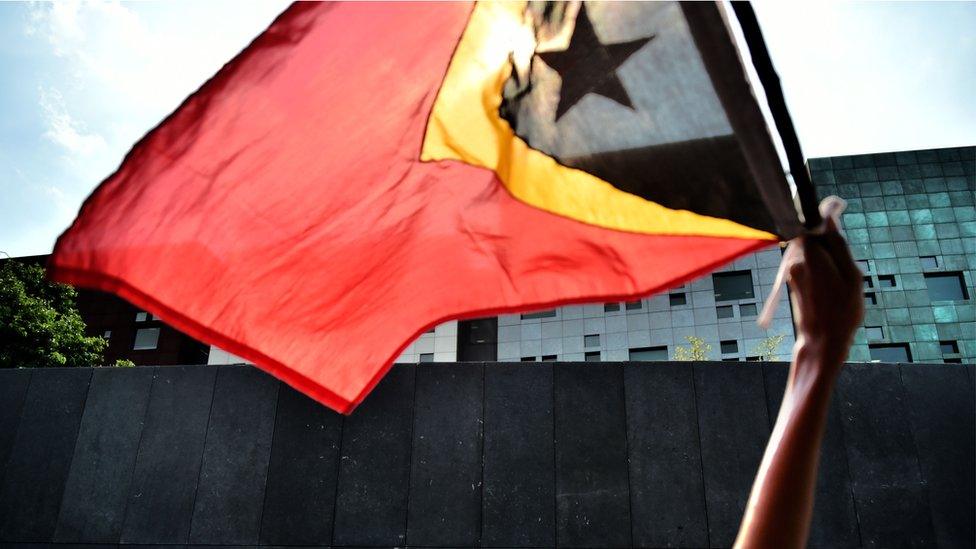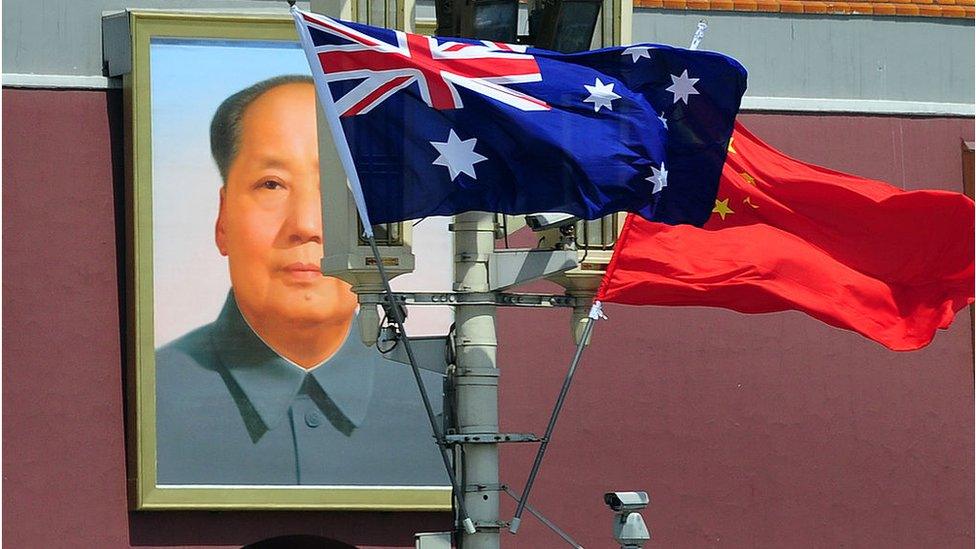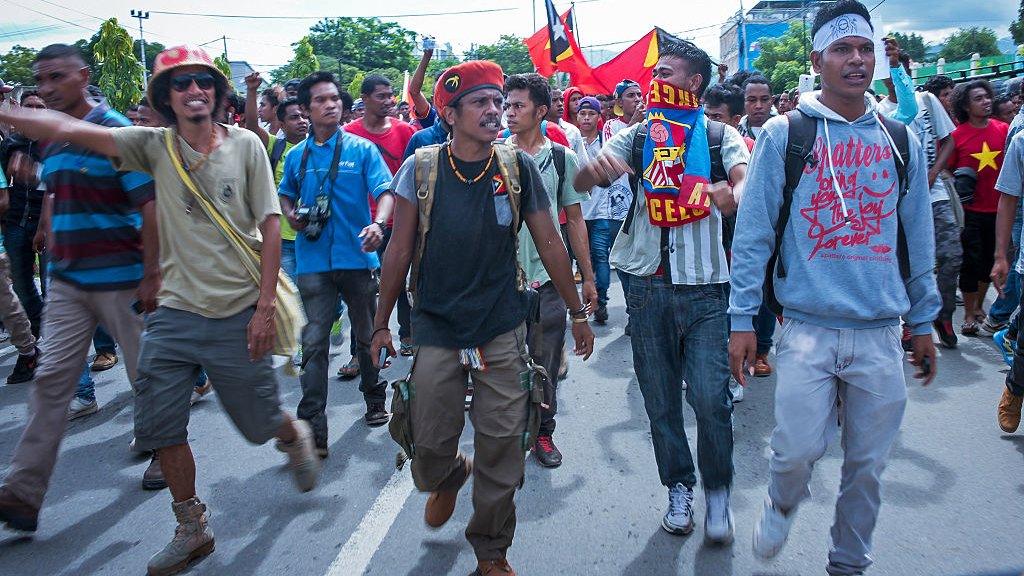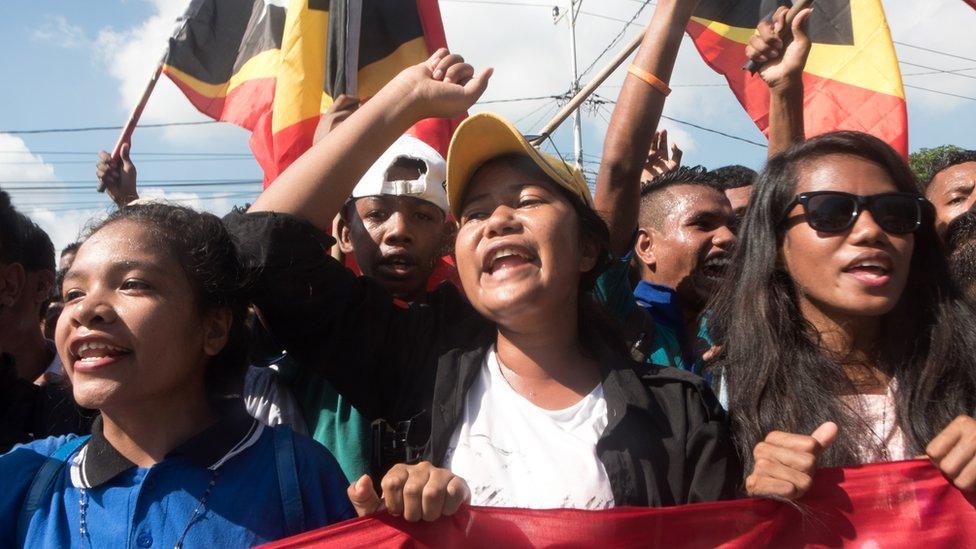Court to arbitrate East Timor-Australia maritime dispute
- Published

Despite its resources wealth, East Timor is still one of the poorest countries in Asia
The international court of arbitration in the Netherlands has agreed to take up a decade-long maritime boundary dispute case between Australia and East Timor.
East Timor wants the court to decide who owns a large undersea oil and gas field.
East Timor says a 2006 treaty for revenue sharing was unfairly forced upon the newly independent nation.
Australia says the international court has no jurisdiction over the dispute.
On Monday, the Permanent Court of Arbitration (PCA) "held that it was competent to continue with the conciliation process" brought by East Timor against Australia in April.
The Greater Sunrise oil and gas field lies between the two nations.

Undersea oil challenge
There is no permanent maritime boundary established between Australia and East Timor
Australia and East Timor have entered into three provisional revenue-sharing treaties regarding oil and gas in the Timor Sea
East Timor receives 90% of petroleum revenue from the Joint Petroleum Development Area that the countries share
But East Timor believes Australia is getting far more than it is entitled to under the United National Convention on the Law of the Sea (UNCLOS)
The small nation wants to establish a maritime boundary with Australia that is equidistant between the two nations
The Australian government says that the current arrangements are consistent with UNCLOS, and claims an equidistant maritime border will actually reduce East Timor's revenue

East Timor - also known as Timor Leste - welcomed the decision by the PCA - the world's oldest arbitration tribunal.
"Just as we fought so hard and suffered so much for our independence, Timor-Leste will not rest until we have our sovereign rights over both land and sea," said Xanana Gusmao, the independence resistance hero and former prime minister.
Australia's Foreign Affairs Minister Julie Bishop said her country accepted the decision.
"We are committed to working together to strengthen our relationship and overcome our differences in the Timor sea," she said.
- Published30 August 2016

- Published13 June 2016

- Published23 March 2016
